If you have an overwatered cucumber plant, it can be a nerve-wracking experience. You may be worried about your plants not getting what they need to thrive, and wondering if there is anything that can be done apart from starting all over again. The good news is that by understanding the causes of an overwatered cucumber plant, you can make changes to get them back in shape and keep them healthy for the rest of the season! In this blog post we’ll go through some key steps on how to combat an overwatered Cucumber Plant, including discussing common symptoms to look out for, ways of avoiding root rot and other tips on how best to save your crop! So without further ado let’s jump into our workflow background information.
Wet Soil is Not the Only Sign of Overwatering
Wilting Leaves
The wilting of leaves is one of the earliest signs of overwatering. Wilting leaves will be limp, and they may even appear translucent. Keep an eye out for yellowish or brown foliage, as this can also indicate overwatering.
Yellow or Brown Leaf Tips and Edges
In addition to wilted leaves, you may also notice yellow or brown tips and edges on the leaves of your cucumber plant.
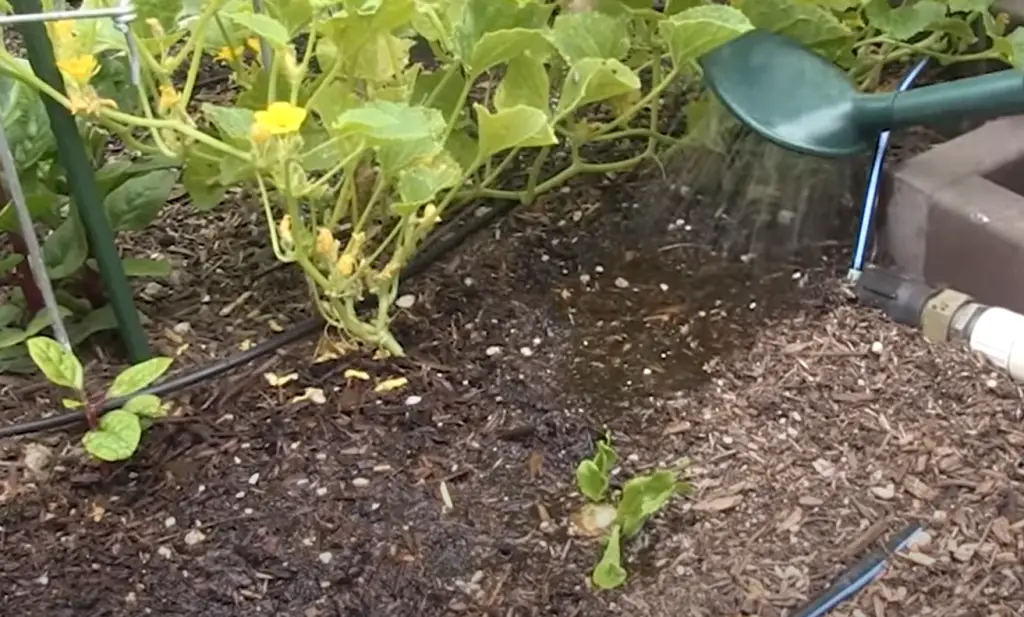
This can be caused by a nutrient imbalance due to too much water in the soil.
Poor Growth and Low Yield
If you have been overwatering your cucumber plant, it is likely that you will see poor growth and a low yield.
Low yields can be caused by the plant expending too much energy to produce fruit instead of putting energy into growing bigger and stronger. This means that when the fruits do appear, they may be smaller than usual or not develop at all. [1]Pest Infestation Issues
Excess moisture in the soil can also contribute to pest infestation issues. Warm, moist conditions make it easier for pests such as aphids and mites to thrive. These pests will feed on the leaves of your plants, causing yellow discoloration and stunted growth. If left unchecked, these pests can quickly overwhelm your cucumber plant and cause serious damage. It is important to regularly check your plants for signs of pest activity and take prompt action if necessary.
Fungal Problems on Plants’ Roots and Stems
Overwatering can also lead to fungal problems on the plants’ roots and stems. Fungal diseases are caused by fungi which live in the soil, and they can cause stunted growth, wilting foliage, and reduced yields. To prevent these types of issues it is important to avoid overwatering your cucumber plants and take steps such as avoiding wetting the leaves when watering and using a well-draining soil mix. If you do notice signs of fungal disease on your cucumber plant, be sure to treat it promptly with an appropriate fungicide.
Diseases Caused by Overwatering Cucumbers Sprouts or Seedlings
In addition to the problems outlined above, overwatering cucumber sprouts or seedlings can also lead to diseases such as damping off. Damping off is caused by a combination of fungal pathogens and excessive moisture in the soil, and it leads to reduced germination rates and poor plant growth. To prevent this type of issue, it is important to be careful not to overwater your cucumber plants and ensure that the soil has proper drainage. If you do notice any signs of damping off on your cucumber plants, be sure to treat it promptly with an appropriate fungicide.
Stunted Growth of Your Plant
Finally, overwatering can cause stunted growth of your cucumber plant. This can manifest itself in a variety of ways such as slow or stunted development, reduced flowering, and yellow discoloration on the leaves. To prevent this type of issue, it is important to ensure that you are not overwatering your plants and that the soil has proper drainage. If you do notice signs of stunted growth on your cucumber plant, it is important to take prompt action so as to avoid further problems down the line.
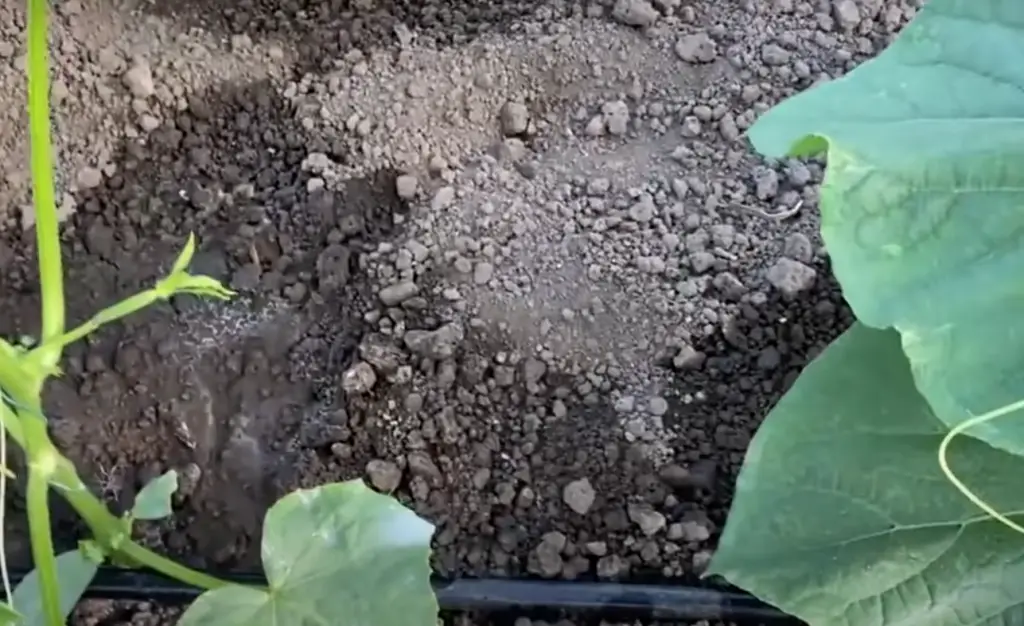
By taking the time to understand how overwatering can affect your cucumber plants, you can
make sure that you water them correctly and help avoid any potential issues related to too much moisture in the soil.
How to Revive an Overwatered Cucumber Plant
Evaluate the Soil Moisture Level
Take a handful of soil from the pot, then squeeze it in your hand. If water comes out or if the soil is damp and sticky, this means that too much water has been used on the cucumber plant. [2]
Adjust Your Watering Habits Accordingly
Once you’ve determined the extent of the overwatering damage, it is important to adjust your watering habits accordingly. You want to make sure that you don’t water again until the soil is completely dry and that you are providing just enough water to keep the soil moist but not wet. If the plant has become rootbound in its pot, consider transferring it into a bigger container with fresh soil so that it can absorb more water without becoming overly saturated.
Increase the Drainage of Your Planters or Garden Bed
For planters and containers, you may need to increase the drainage by adding more holes in the bottom of your pot or changing soil types. For garden beds, make sure there is good aeration throughout the entire bed so that excess water can drain away. Consider using a raised garden bed with a frame to avoid any problems with standing water.
Apply Organic Fertilizer to Enhance Nutrients Absorption by Plants’ Roots
Organic fertilizers are great for helping plants recover from overwatering because they provide extra nutrients that help the plant restore its health.
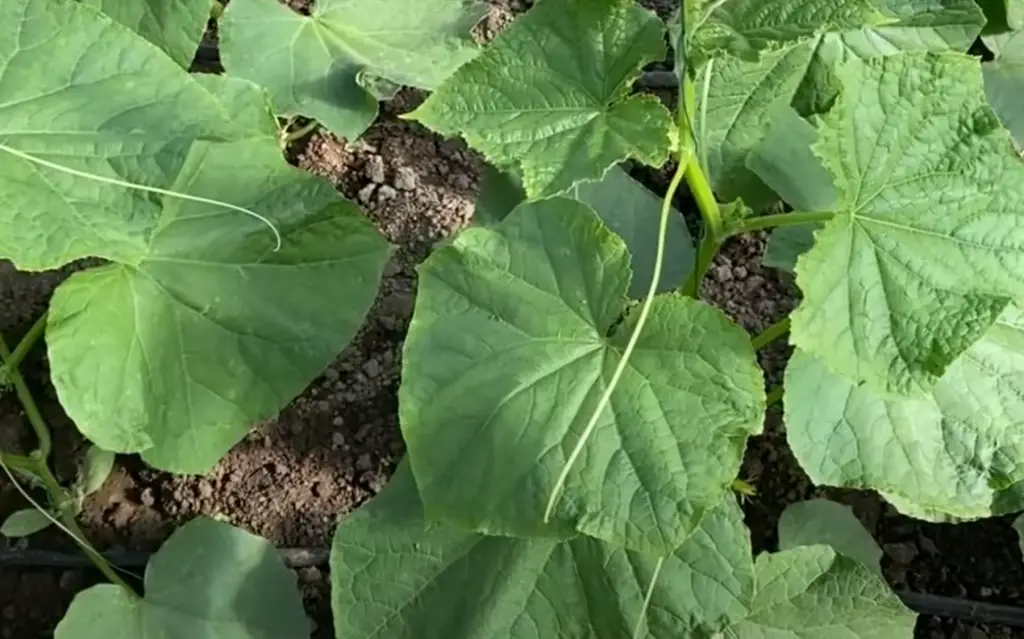
For cucumbers, a balanced organic fertilizer with an N-P-K ratio of 5-4-3 is ideal. A single application should be enough to get your plant back in good condition.
Check for Pest and Disease Issues That May be Caused By Overwatering
Too much water can also create an environment in which pests and diseases can thrive. Check your cucumber plants for signs of insect infestations, fungal infections, and other issues that may have been caused by the overwatering. If any of these are present, you will need to take steps to address the issue before it gets worse. Once the pest or disease has been eliminated, your plant should be able to recover from the damage caused by overwatering.
Pay Attention To The Weather Forecast and Make Necessary Preparations
Once your cucumber plant has recovered, it is important to pay attention to the weather forecast and make preparations for any unexpected storms or heavy rainfall. If you know that there might be a lot of rain in the near future, make sure you adjust your watering habits accordingly so that your plant does not become oversaturated again.
Should You Remove Dying Cucumber Leaves?
It is important to properly identify the causes of a cucumber plant’s distress before attempting to treat it. If you have been overwatering your cucumber plant, it may be beneficial to remove some of the dying leaves. Removing these leaves will reduce the amount of moisture in the air around the plant and allow it to slowly rehydrate itself. However, if the cause of distress is due to something else, such as an insect infestation or disease, more drastic measures may be necessary. Be sure that any leaves you remove are completely dead and not just wilted or discolored as this could potentially spread infection throughout the rest of your garden. When removing leaves, always use clean tools and gloves to prevent further spread of disease. Lastly, be sure to dispose of the dead leaves away from the garden as they can be a breeding ground for pests and other problems. With proper care and attention, your cucumber plant should soon be back to its healthy self! [3]
Do Cucumbers Need Full Sunlight?
Yes, cucumbers do need full sunlight to thrive. They should receive at least six hours of direct light each day during the growing season. The amount and intensity of light available will affect the yield and quality of the fruit produced by your cucumber plant, so make sure that it is getting enough light.
You may also want to supplement the natural sunlight with artificial lighting for an additional boost. This can be done with grow lights or other types of horticultural lighting. This extra bit of light can help ensure that your cucumber plant is producing its best harvest.
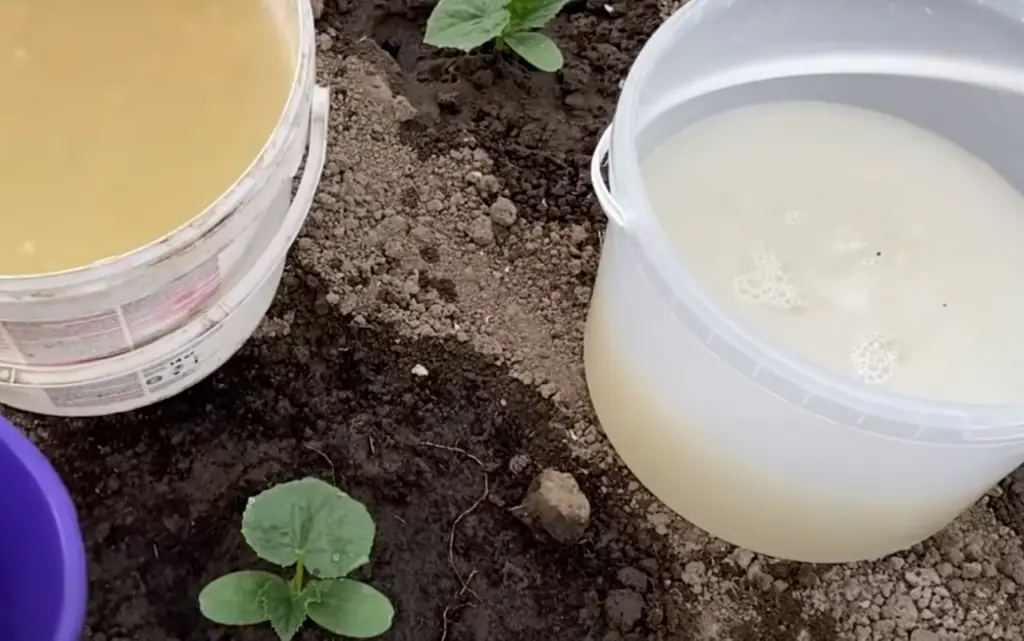
It is important to remember that cucumber plants need more than just light; they also need plenty of water and nutrients to stay healthy. Make sure the soil in the area where your cucumber plant is growing is well drained and has adequate moisture. Also, be sure to fertilize your cucumber plant regularly with a balanced fertilizer, such as 10-10-10 or 14-14-14. This will help ensure that your cucumber plant has all of the nutrients it needs for vigorous growth and good yields.
How Often Should You Water Cucumber Plants?
When it comes to watering cucumber plants, the amount of water and frequency of watering depends on several factors such as the size of your container, temperature, humidity levels, sunlight intensity, soil type, etc. Generally speaking, you should aim to keep the soil moist but not soggy. Depending on these factors mentioned above, you may need to water your cucumber plant everyday or every other day during hot weather. On cooler days or when there is plenty of rainfall/moisture in the air, less frequent watering (once every 3-4 days) may be enough. When it comes to overwatered cucumber plants, however, it’s important to take action right away as they can quickly succumb to disease like root rot or fungal problems. [4]
Can You Keep Cucumber Water Overnight?
No, you should not keep cucumber water overnight. Any water that has been used to water a plant should be discarded after it has been used, as the water can quickly become stagnant and provide bacteria with a breeding ground. If the same water is reused for multiple watering sessions, it might contain unhealthy amounts of fertilizer residue or microbial growth. Therefore, any leftover cucumber water should be disposed of in order to prevent potential harm to your plants.
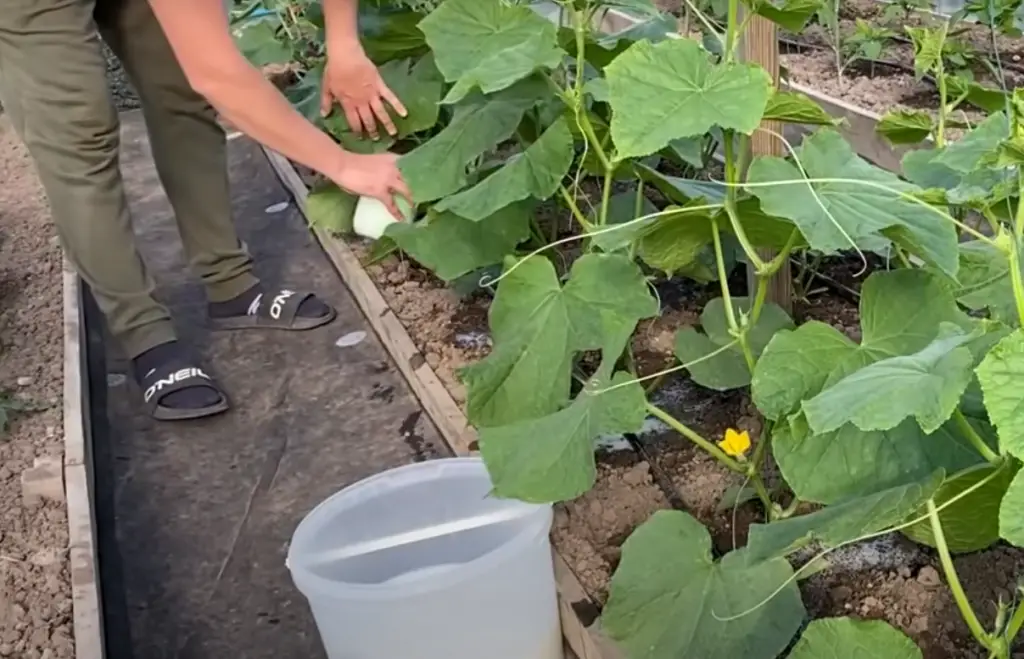
Additionally, cucumbers produce large amounts of ethylene gas which can cause rotting and discoloration over time when left in standing water. Therefore, it is best practice to discard any unused cucumber water after each use. An alternative would be to store the cucumbers in a tub on ice and use the same cold water for multiple days. However, if any cucumbers have begun to rot in the water, it should be immediately disposed of. It is ultimately best practice to discard all used cucumber water after each watering session as an added precautionary measure. Doing so will reduce your chances of developing an unhealthy environment for your plants and keep them healthy and thriving. [5]
FAQs
How do I water my cucumbers without overwatering?
The best way to water your cucumbers without overwatering is to check the soil moisture level before watering. If the soil feels dry, you can add enough water to moisten it. Avoid over-saturating or flooding the roots since this can result in root rot and other diseases that cause plant death.
How long can a cucumber plant go without water?
Cucumber plants need an average of 1-2 inches of water per week in order to thrive. While cucumbers can survive for short periods without water, too much time without it will cause the plant to suffer. If a cucumber plant goes longer than a few days without water, its leaves will begin to wilt and drop off. The only way to revive the plant is to give it enough water as soon as possible. Depending on how long the cucumber has been deprived of moisture, giving the soil around it a generous amount of water may or may not be enough: if the soil is extremely dry and cracked, you may need to add several gallons of water over several days before the cucumber starts looking healthy again.
Can you save an overwatered cucumber plant?
The answer is yes! When the soil is overly saturated, you can take several measures to save the plant.
The first thing to do is determine if the root system has been adversely affected by the overwatering. To do this, gently remove any excess soil from around the roots and then lightly shake off any remaining water droplets. If there are no signs of rotting or wilting, you have a chance of saving your cucumber plant!
Next, it’s important to assess how often you’ve been watering your cucumber plant. If you’ve been watering too frequently or with large amounts of water at once, then it’s time to reduce your watering schedule and frequency. Stick to light weekly watering and check on the soil between waterings to make sure it’s not overly saturated.
Once the root system has recovered, you can begin fertilizing your cucumber plant and provide the nutrients needed for growth. You may also want to repot your cucumber into a larger pot with fresh soil if there is too much standing water in the old one.
Finally, be sure to keep an eye on the weather. If temperatures are unusually high or it’s raining more than usual, then chances are that your cucumber plant is getting too much water. Move it out of direct sunlight and continue watering lightly as needed until things return to normal.
Why are the leaves of my cucumber plant turning yellow?
This is a common issue that can have many different causes, from too much water to nutrient deficiencies. If the leaves of your cucumber plant are turning yellow, it could be a sign of overwatering. Overwatering can cause root rot and lead to leaf discoloration and wilting.
To determine if this is the case, first check the soil around the roots. Is it soggy and moist or dry? Roots need oxygen and if they remain in wet soil for too long, they will become ‘suffocated’ which can lead to poor growth and eventually death of the plant. If you think that your cucumber plant has been overwatered, take steps to correct it quickly.
What happens if you over fertilize cucumbers?
When cucumbers are over fertilized, they can suffer from a common condition known as “fertilizer burn”. Fertilizer burn is caused by an imbalance of nutrients in the soil which can happen when too much fertilizer is applied or when the wrong type of fertilizer is used. Symptoms of fertilizer burn include yellowing and wilting leaves, dry patches on the stem and fruit, and stunted growth.
Fortunately, fertilizer burn can be easily prevented through proper fertilization techniques. To avoid over fertilizing your cucumber plants, always follow the instructions provided on the packaging of your chosen fertilizer product. Additionally, it’s important to check your soil for nutrient imbalances prior to any application so that you can provide the appropriate nutrient level for your cucumber plants. With proper fertilization techniques, you can ensure healthy growth and a bountiful harvest of cucumbers from your garden!
Useful Video: 3 Reasons Your Cucumber Plants Suddenly Wilt
Conclusion
In conclusion, overwatering your cucumber plant can be detrimental to its health. Fortunately, there are some steps you can take to try and save it before it’s too late. First, check the soil for signs of over-saturation and if necessary allow ample time for it to dry out between waterings. Next, try trimming any yellow or brown leaves as a way of reducing stress on the plant. Lastly, add an aerator like a potting mix amendment in order to help increase oxygen levels in the root zone and promote drainage. With careful attention and proper care, your cucumber plant should start showing signs of improvement soon enough! Taking a few simple steps will go far towards ensuring that both you and your cucumber plant can enjoy a long and healthy relationship.
Good luck!
References:
- https://backyardgardenersnetwork.org/overwatered-cucumber-plant/
- https://www.gardenerbasics.com/blog/overwatered-cucumber-plants
- https://plantscraze.com/overwatered-cucumber-plant/
- https://www.evergreenseeds.com/overwatered-cucumber-plants
- https://careofgarden.com/overwatered-cucumber-plants/





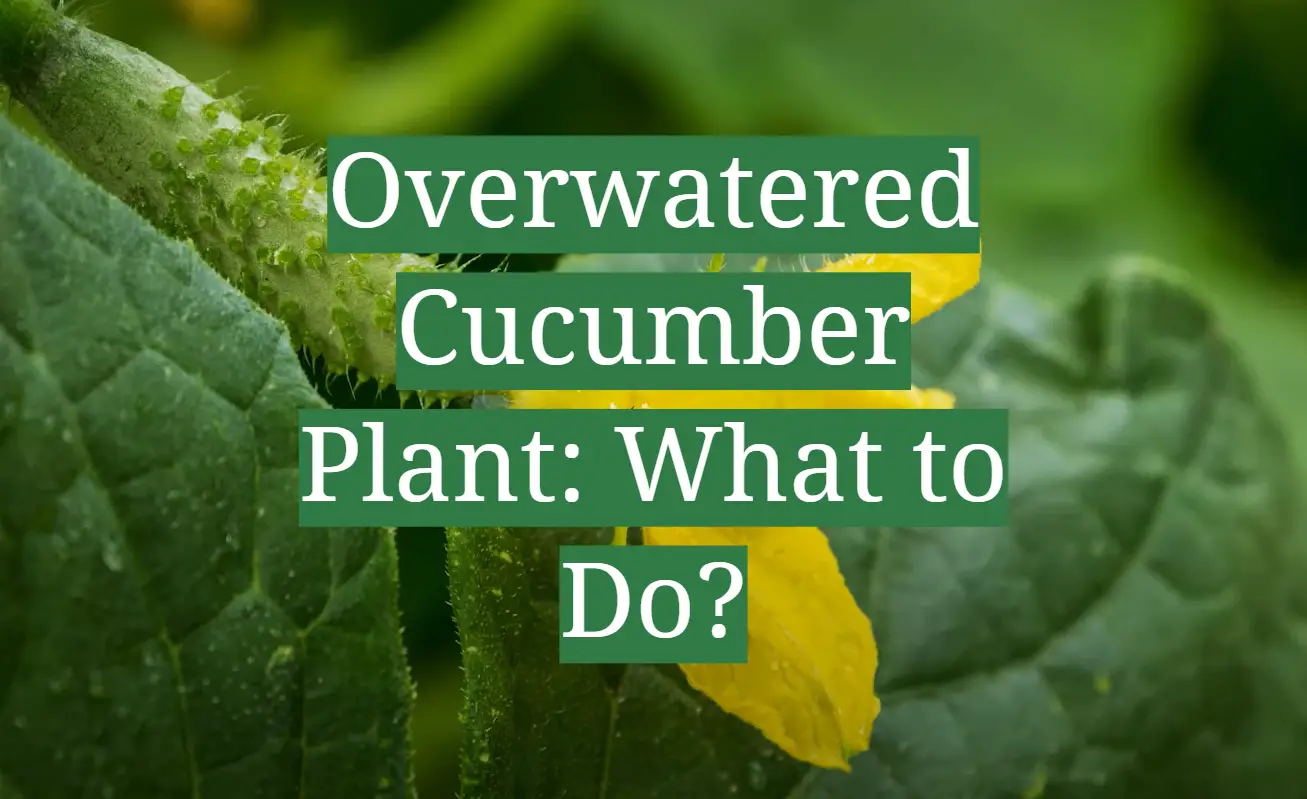




Leave a Reply
View Comments